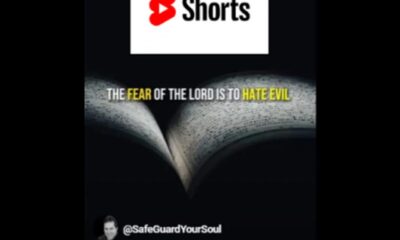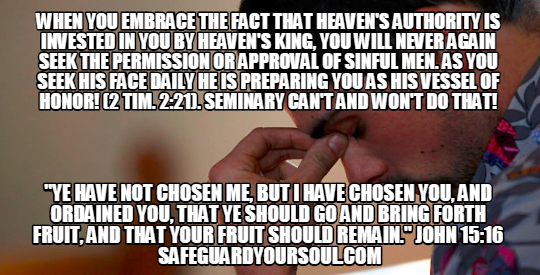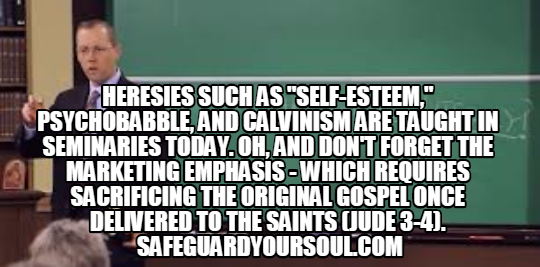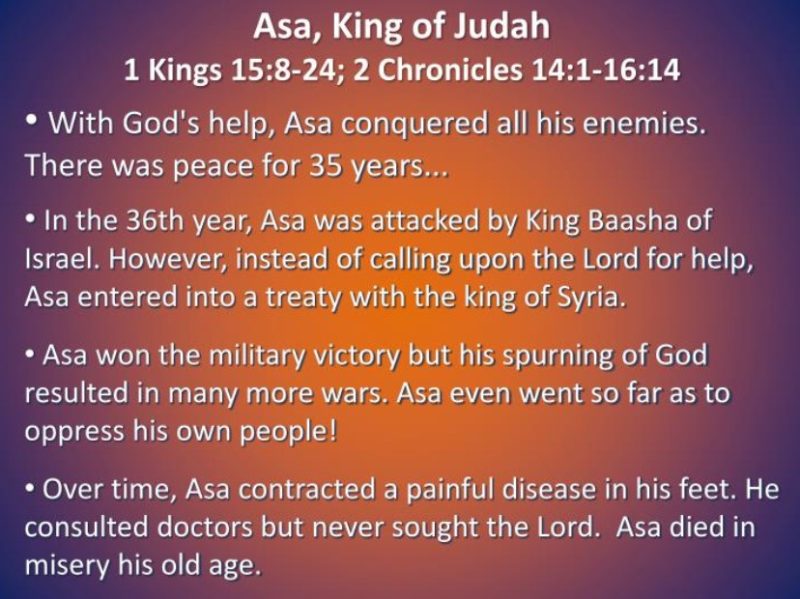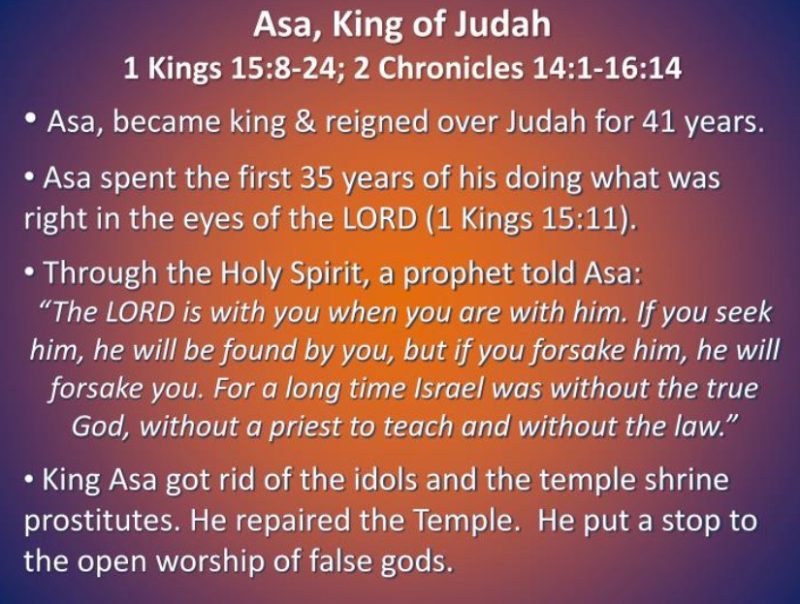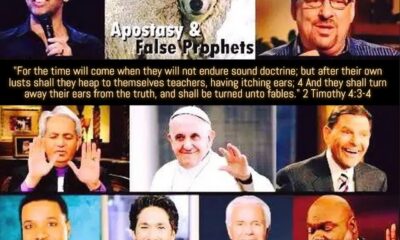by Will Kinney
The word Hell in the King James Bible
The Doctrine of Hell in the King James Bible
Hell or Hades or Sheol or the Grave?
 The doctrine of Hell is getting a lot cooler in the modern versions.
The doctrine of Hell is getting a lot cooler in the modern versions.
In fact, a lot of theologically important words in the Holy Bible are being toned down or even lost entirely. As examples, here is a partial list of the frequency of certain words comparing the King James Bible Old Testament, with the NKJV, the NASB, ESV and the NIV Old Testament.
TRUTH KJB – 118 times; NKJV – about same; NASB – 92; ESV – 44; NIV – 41
GRACE KJB -38 times; NKJV – 20; NASB – 9; ESV – 7; NIV – 8
MERCY, MERCIFUL KJB – 288 times; NKJV -same; NASB – 51; ESV – 132; NIV – 85
SOUL KJB – 478 times; NKJV – same; NASB – 255; NIV – 110
LUCIFER KJB – 1 time; NKJV – 1 time; NASB – 0; ESV – 0; NIV – 0
JEHOVAH KJB – 7 times; NKJV – 0; NASB – 0; ESV – 0; NIV – 0
HELL KJB – 31 times; NKJV – 19; NASB – 0; ESV – 0; NIV – 0
Examples of other words in the whole Bible, both testaments.
DOCTRINE KJB – 56 times; NKJV – 42; NASB – 14; ESV – 13; NIV – 7
 SAINTS KJB – 98 times; NKJV – 98; NASB – 68; ESV – 82; NIV 2011 – 0
SAINTS KJB – 98 times; NKJV – 98; NASB – 68; ESV – 82; NIV 2011 – 0
FORNICATION KJB – 44 times; NKJV – 21; NASB – 8; ESV – 0; NIV – 0
DAMNATION, DAMNED KJB – 9 times; NKJV – 0; NASB – 0; ESV – 0; NIV – 0
HELL (whole Bible) KJB – 53 times; NKJV – 32; NASB -13; ESV – 14; NIV – 13
HUMAN – The word “human” is the gender-neutral, New Age, Evolutionary Buzz-word.
How many times does it appear?
In the King James Bible, Geneva Bible, ASV 1901 – ZERO times.
In the NKJV – 15 times
(a few examples)
Leviticus 5:3 – Or if he touches HUMAN uncleanness—whatever uncleanness with which a man may be defiled, and he is unaware of it—when he realizes it, then he shall be guilty.
John 16:21 – A woman, when she is in labor, has sorrow because her hour has come; but as soon as she has given birth to the child, she no longer remembers the anguish, for joy that a HUMAN being has been born into the world.
 Romans 6:19 – I speak in HUMAN terms because of the weakness of your flesh. For just as you presented your members as slaves of uncleanness, and of lawlessness leading to more lawlessness, so now present your members as slaves of righteousness for holiness.
Romans 6:19 – I speak in HUMAN terms because of the weakness of your flesh. For just as you presented your members as slaves of uncleanness, and of lawlessness leading to more lawlessness, so now present your members as slaves of righteousness for holiness.
1 Corinthians 2:4 – And my speech and my preaching were not with persuasive words of HUMAN wisdom, but in demonstration of the Spirit and of power,
1 Corinthians 4:3 – But with me it is a very small thing that I should be judged by you or by a HUMAN court. In fact, I do not even judge myself.
Hebrews 12:9 – Furthermore, we have had HUMAN fathers who corrected us, and we paid them respect. Shall we not much more readily be in subjection to the Father of spirits and live?
NASB – 39 times
ESV – 65 times
Holman Christian Standard – 141 times
NIV – 214 times
 Examples from Genesis 6 – “When HUMAN beings began to increase in number on the earth and daughters were born to them, the sons of God saw that the daughters of HUMANS were beautiful, and they married any of them they chose. Then the Lord said, “My Spirit will not contend with HUMANS forever, for they are mortal; their days will be a hundred and twenty years.”
Examples from Genesis 6 – “When HUMAN beings began to increase in number on the earth and daughters were born to them, the sons of God saw that the daughters of HUMANS were beautiful, and they married any of them they chose. Then the Lord said, “My Spirit will not contend with HUMANS forever, for they are mortal; their days will be a hundred and twenty years.”
Dan Wallace’s NET version – 233 times
One Bible Critic, named Reese Currie, posts at his site this ignorant criticism of the KJB saying –
“Luke 16:23 KJV: And in hell he lift up his eyes, being in torments, and seeth Abraham afar off, and Lazarus in his bosom.
NKJV: “And being in torments in Hades, he lifted up his eyes and saw Abraham afar off, and Lazarus in his bosom.”
The Greek word is hades, which means, “the abode of the dead.” Here, the NKJV transliterates the Greek word hades to differentiate “Hades,” the abode of the dead, from “Gehenna,” the lake of fire. It is much more accurate to do so, since Hades is going to be thrown into the lake of fire in Revelation 20:14. The wording is Jesus’ wording and I have no issues with it. The NKJV is more accurate.” (End of his comments)
First, all this Bible Rummager and unbeliever in the inerrancy of ANY Bible is giving us, is his own personal opinion. Many others disagree with him.
And secondly, the word Gehenna is never translated as the “lake of fire” and he cannot prove from Scripture his assertion that Gehenna and the lake of fire are the same thing. He just made that up and gave us his opinion. That’s all he did, and his personal opinion cannot be backed up from the Bible.
Hell in the Modern Versions – hades, geenna and tartaros = A very mixed up and inconsistent mess
The words still translated as hell in the N.T. of these modern versions (NKJV, NIV, NASB, ESV) are geenna 12 times (Matthew 5:22, 29, 30; 10:28; 18:9; 23:15,33; Mark 9:43,45,47; Luke 12:5 and James 3:6) and tartaros 1 time (2 Pet. 2:4).
The 2001 – 2011 ESVs still translate hades as “hell” in Matthew 16:18 “the gates of hell shall not prevail against it.”
The NIV editions of 1973 and 1984 translated hades as “hell” in Luke 16:23 “in hell he lift up his eyes, being in torments”, but the 2011 “new” New International Version now has “hades”.
The ISV (International Standard Version) has translated hades as “hell” in Matthew 16:18 “the gates of hell”.
Petterson’s 2002 The Message has translated hades as “hell” in Matthew 16:18, Luke 16:23, Revelation 6:8, and Revelation 20:13 and 14.
Dan Wallace’s NET version 2006 is a study in confusion. He has “gehenna” as hell and “tartaros” as hell, but when it comes to “hades” most of the time he has the transliteration “hades” but in Luke 16:23 he goes with “hell” saying – “And in HELL, as he was in torment, he looked up and saw Abraham far off with Lazarus at his side.”
And then he twice “translates” a word that is not hell as hell. He does this in Galatians 1:8 and 9 –
“But even if we (or an angel from heaven) should preach a gospel contrary to the one we preached to you, let him be condemned to HELL! As we have said before, and now I say again, if any one is preaching to you a gospel contrary to what you received, let him be condemned to HELL!”
The Catholic Connection
It is interesting to compare and contrast the ever changing Catholic bible versions. The other Greek word that is often translated as “hell” in the King James Bible and many others is hades. In the older Catholic Douay-Rheims version, every time the KJB has hades as “hell”, so did this older Catholic bible – See Matthew 11:23; 16:18; Luke 10:15; 16:23; Acts 2:27,31; Rev. 1:18; 6:8 and 20:13 and 14.
But the New Jerusalem bible (catholic) of 1985 has translated the Greek word hades as “hell” in Matthew 11:23 and Luke 10:15, as “the underworld” in Mat. 16:18, and as Hades in Mat. 11:23; Luke 16:23, Acts 2:27,31, and in Rev.1:18; 6:8 and 20:13,14. So we see that all these modern versions are consistently inconsistent.
This particular study will focus on the word Hell and how it is being air conditioned by degrees in many modern versions. There are many who criticize the King James Bible as being wrong for translating certain Hebrew and Greek words as Hell.
In the King James Old Testament the Hebrew word Sheol is variously translated as HELL – 31 times; THE GRAVE – 31 times, and as THE PIT – 3 times.
The modern versions disagree among themselves and have little room in which to criticize the KJB.
 The NKJV transliterates this same word as Sheol 18 times, but then translates it as HELL 19 times, rather than the 31 times as in the KJB. It also has translated the word as the GRAVE and the PIT.
The NKJV transliterates this same word as Sheol 18 times, but then translates it as HELL 19 times, rather than the 31 times as in the KJB. It also has translated the word as the GRAVE and the PIT.
The NIV never translates it as hell or even as Sheol, but instead has the GRAVE 55 times, DEATH 6 times, the DEPTHS 2 times, the DEPTHS OF THE GRAVE 2 times, and as THE REALM OF DEATH once.
The NASB and the ESV on the other hand, transliterate rather than translate this word every single time as SHEOL. How many Christians know what Sheol is? It strikes fear in the heart, doesn’t it?
What we see here is that the very scholars who criticize the King James Bible for translating the word at times as HELL can’t seem to agree even among themselves as to what the word means in various contexts.
Let’s look at a few examples.
Psalm 9:17
King James Bible – “The wicked shall be turned into HELL, and all the nations that forget God.”
NIV – “The wicked RETURN TO THE GRAVE, all the nations that forget God.”
There are two big problems with the NIV rendering here. First, you can only RETURN TO someplace you have already been before. Does the NIV teach reincarnation? You can teach it using the NIV, but you cannot get the doctrine of reincarnation from the King James Bible.
Second, most everyone, the wicked and the righteous, go to the grave. So what else is new? The context is the fate of the wicked, and it is not the same as that of the righteous. The NIV rendering is silly at best, and diabolical at worst.
NASB, ESV 2001 – “The wicked will RETURN TO SHEOL, even all the nations who forget God.”
The NASB, ESV have two similar problems. How do people return to someplace if they have not been there before? Also what in the world is Sheol? Many criticize the KJB for being hard to understand, but how many of them know what Sheol is?
And again there is no distinction between the wicked and the righteous in the NASB rendering. The liberal RSV has: “The wicked shall depart to Sheol”, the ESV 2011 is similar with “the wicked shall RETURN to Sheol” and the Catholic New Jerusalem bible of 1985 has: “May the wicked turn away to Sheol.”
 The Jewish translations differ among themselves as well. The 1917 JPS (Jewish Publication Society) says: “The wicked shall return to THE NETHER-WORLD, even all the nations that forget God.” The Jewish Family Bible 1864 – “Wicked ones shall return unto the GRAVE, and all nations that forget God.”
The Jewish translations differ among themselves as well. The 1917 JPS (Jewish Publication Society) says: “The wicked shall return to THE NETHER-WORLD, even all the nations that forget God.” The Jewish Family Bible 1864 – “Wicked ones shall return unto the GRAVE, and all nations that forget God.”
The Ancient Hebrew Bible 1907 and the 1936 The Holy Scriptures, Hebrew Publishing Company, say: “The wicked shall be turned into HELL” and the Complete Jewish Bible 1998 says: “The wicked will return to SH’OL, all the nations that forget God.”
Psalms 9:17 – “The wicked shall be turned into HELL”
The NKJV – “The wicked shall be turned into hell, and all the nations that forget God.” = the KJB here. Also agreeing with the King James Bible are Wycliffe 1395, Coverdale 1535, the Great Bible 1540, Matthew’s Bible 1549, the Bishops’ Bible 1568, the Geneva Bible 1587, the Douay-Rheims Bible of 1610, the Bill Bible 1671, The Longman Version 1841, The Boothroyd Bible 1853, the Lesser Bible 1853, The Revised English Bible 1877, The Sharpe Bible 1883, the Douay of 1950 (Though the 1970 St. Joseph NAB says “to the NETHER WORLD” and the New Jerusalem bible 1985 says “turn away to SHEOL”) The Word of Yah 1993, the KJV 21st Century Version 1994, the Third Millennium Bible 1998, God’s First Truth 1999, The Revised Geneva Bible 2005, the Bond Slave Version 2009, the Catholic Public Domain Version of 2009, The Work of God’s Children Illustrated Bible 2011 and A Conservative Bible 2011 – “The wicked shall be turned into HELL, and all the nations that forget God.”, The Revised Douay-Rheims Bible 2012, the BRG Bible 2012.
In 1395 Wycliffe wrote: “Synneris be turned togidere in to HELLE; alle folkis, that foryeten God.”
And the 2002 Message paraphrases it in this way: “The wicked bought a one-way ticket to HELL.”
This online Hebrew Interlinear Old Testament – “shall be turned The wicked into HELL, all the nations that forget God.”
Jewish Virtual Library The Tanakh [Full Text] 1998
“The wicked shall be TURNED INTO HELL, and all the nations that forget God.”
Foreign Language Bibles
The Portuguese de Almeida of 1681, and the Portuguese La Biblia Sagrada and the 2000 O Livro all read exactly like the KJB saying: “Os ímpios seräo lançados no INFERNO, e todas as naçöes que se esquecem de Deus.” , as does the French Ostervald of 1996 – “Les méchants reculeront jusqu’aux ENFERS, et toutes les nations qui oublient Dieu.”, the Italian Diodati of 1649 – ” Andranno in volta NELL’INFERNO.” and the Conferenza Episcopale Italiana Bible – “ornino gli empi negli INFERI”, and the Spanish Cipriano de Valera of 1602, 1865, 1909 and the 2010 Reina-Valera Gomez Bible – “Los malos serán trasladados al INFIERNO.”, The Romanian Fidela Bible 2014 – “Cei stricaţi vor fi întorşi în iad împreună cu toate naţiunile care uită pe Dumnezeu.” = “the wicked shall be turned into HELL, and all the nations that forget God.”
Likewise Baptist Bible commentator John Gill states: “The wicked shall be turned into hell,…. Some render it, “shall return to the grave”, to the earth, the original dust from whence they came; but this is common to all men, to the righteous as well as the wicked; rather lwav here signifies the place of torment, commonly called HELL, where devils and damned spirits are; hither the souls of the wicked go immediately upon their departure from their bodies, Luke 16:23; and after the judgment is over, they will be remanded thither in soul and body; and their damnation is called the destruction of soul and body in HELL;… this is true of all the wicked, the beast and false prophet, who shall be cast alive into the lake of fire burning with brimstone, Revelation 19:20″
The Hebrew word Sheol communicates nothing to us in the English language. There are many different views among the scholars themselves as to what this word signifies and it seems to vary with different contexts. Many Hebrew and Greek words have multiple meanings which change their sense according to the context and scholars argue over them all the time.
The 1987 Amplified Bible (Lockman Foundation) translates Psalms 9:17 as: “The wicked shall be turned back [headlong into premature death] into Sheol (the place of the departed spirits of the wicked), even all the nations that forget or are forgetful of God.” But we know from the New Testament that the place of the departed spirits of the wicked is called HELL!
The 2012 ISV (International Standard Version) translates Psalms 9:17 differently than most, saying: “The wicked will turn back TO WHERE THE DEAD ARE.”
There are times when the word simply means the GRAVE, as in Genesis 42:38 where Jacob says: “My son shall not go down with you (into Egypt)…if mischief befall him…then shall ye bring down my gray hairs with sorrow to THE GRAVE.”
At other times the word means HELL, as the place of the dead in the heart of the earth. Scripture tells us in both the Old and New Testaments that there are compartments or degrees of hell. Both Deuteronomy 32 and Psalm 86 speak of THE LOWEST HELL.
In Deuteronomy 32:22 God says: “For a fire is kindled in mine anger and shall burn unto the lowest hell”, and in Psalm 86:13 David says to God: “For great is thy mercy toward me: and thou hast delivered my soul from THE LOWEST HELL.”
Shoel as HELL in the Old Testament
Among the various Bible versions that sometimes translate the Hebrew word sheol as “hell” are the following: Wycliffe 1395, Coverdale 1535, the Great Bible 1540, Matthew’s Bible 1549, the Bishop’s Bible 1568, the Geneva Bible 1599, Douay-Rheims 1610, the Bill Bible 1671, Webster’s 1833 translation, Living Oracles 1835, The Longman Version 1841, the Lesser Bible 1853, The Boothroyd Bible 1853, The Revised English Bible 1877, The Sharpe Bible 1883, the Revised Version 1881, The Ancient Hebrew Bible 1907, the Jewish 1936 Hebrew Publishing Company translation by Alexander Harkavy into English, Luther’s German Bible 1545, Brenton’s translation of the Septuagint 1851, the Spanish Reina Valera 1569, 1602, 1909, the Italian Diodati 1602, the Portuguese de Almeida 1681, Portuguese O Livro of 2000, Rotherham’s Emphasized Bible 1902, the Douay 1950, the Bible in Basic English 1961 (2 Sam.22:6; Psalm 18:5), New Life Version 1969 (Pro. 5:5, 7:27, 19:18, 15:24,23:14), God’s Word Translation 1995, the KJV 21st Century Version 1994, New Living Translation, the NKJV 1982, Third Millennium Bible 1998, and the 2002 version called The Message in 2 Samuel 22:6; Job 26:6, Psalm 9:17, 16:10, 18:5, 31:17, 49:14, 55:15, 88:3, 89:68, 116:3, 141:7, Proverbs 5:5, 7:27, 9:18, 15:24, 27:20, and Isaiah 57:9!!!
Other Bible translations that have HELL in places like Deuteronomy 32:22 – “For a fire is kindled in mine anger and shall burn unto THE LOWEST HELL” are The Jewish Family Bible 1864 – “shall burn unto the lowest HELL”, The Word of Yah 1993, God’s First Truth 1999, J.P. Green’s ‘literal’ 2005, The Apostolic Bible 2006, Hebraic Transliteration Scripture 2010, Jubilee Bible 2010 – “For it is a fire that consumes unto HELL and would root out all my increase.” (Job 31:12; Psalm 88:11; Proverbs 15:11; 17:20), Conservative Bible 2011, The Work of God’s Children Illustrated Bible 2011, Names of God Bible 2011 – “My anger has started a fire that will burn to the depths of HELL.” (12 times in O.T. See Ps. 139:8; Job 11:8; Ps. 49:14,15; 83:13; 139:8; Pro. 5:5 “Her steps lead straight to HELL”, Pro. 9:18; 15:24; 27:20 – “HELL and decay are never satisfied”, the Biblos Interlinear Bible 2011 – “the lowest HELL”, The Revised Douay-Rheims Bible 2012, The New Brenton Translation 2012 – “shall burn unto the lowest HELL”, The Biblos Bible 2013, the Modern English Version 2014 – “Yet you shall be brought down to HELL, to the sides of the pit.” (Isaiah 14:9,15; 28:15; 28:18)
Hades or HELL in the New Testament
In the New Testament the same confusion among the various bible versions is seen in the manner in which they translate or not the word Hades. There are many Bible critics who tell us the King James Bible is in error for translating the word Hades as Hell. Yet, as we shall see, the “scholars” are in total disagreement among themselves regarding this.
Luke 16:19-31 is the classic case showing the division that existed in hell before the resurrection of Christ from the dead. There we see the beggar Lazarus in Abraham’s bosom being comforted and in contrast we see the rich man IN HELL being tormented. There was a great gulf fixed between the two sections dividing the righteous from the wicked.
The Greek word used here is hades – αδης. The King James Bible translated it as hell, while the NKJV and NASB have Hades.
A simple visit to the “Oxford Compact English Dictionary” would clear it up for all but the most rabid of ”scholars”! “Hades” is a proper noun for A MYTH!
The NIV is interesting in that it has variously translated this same word as “Hades -5 times, depths – 2 times, grave – 1 time; and as Hell only once and that is here in Luke 16:23!
Oh, but wait. Apparently that one time as “hell” in Luke 16:23 in the NIVs of 1973 and 1984 was one time too many. Now the late$t NIV revi$ion of 2011 has come out and they have now decided that this should “Hades”.
The ESV likewise translates Luke 16:23 as “and in HADES, being in torment”, yet they have inconsistently translated this same word as HELL in Matthew 16:18 – “the gates of HELL shall not prevail against it.”
Hell itself is not the final state of the wicked. After the great white throne judgment we are told in Revelation 20:14 “And death and hell were cast into the lake of fire. This is the second death.”
Those who complain about this word being translated as “hell” should check out some other bible versions to see what others, who have just as much education as they do, have done with these passages.
Hades – αδης – as HELL in the New Testament
Even today in the modern Greek language, the word αδης (hades) means HELL. I have a hard copy of Divry’s Modern English-Greek and Greek-English Dictionary. If you look up the word “hell” is says αδης, and if you go to the Greek to English side of the dictionary and look up αδης it defines it as HELL; Hades. Hades is a transliteration and Hell is a translation into English of what the word means.
Online Greek Dictionary
Type in the word άδης and the first definition is “hell”
άδης
hell (proper) – in various religions, the place where sinners are said to go after death.
underworld – world of the dead
hades (noun)
inferno (noun)
Not only does the King James Bible translate the Greek word hades (αδης) as “hell” but so do the following Bible versions: Wycliffe 1395, Tyndale 1525, Coverdale 1535, the Great Bible 1540, Matthew’s Bible 1549, the Bishop’s Bible 1568, Geneva Bible 1599, The Beza New Testament 1599, The Bill Bible 1671, John Wesley’s N.T. 1755, Worsley Version 1770, Thomas Haweis N.T. 1795, The Clarke N.T. 1795, The Revised Translation 1815, Webster’s 1833 translation, The Longman Version 1841, The Hewett N.T. 1850, The Commonly Received Version 1851, The Revised N.T. 1862, The Alford N.T. 1870, the Smith Bible 1876, The Revised English Bible 1877, The Sharpe Bible 1883, The Clarke N.T. 1913, the Douay 1950, The Basic English Bible 1965, The New Life Version 1969, the New Living Translation 1996 (Mat. 16:18), Today’s English Version 1992 (Mat.11:23, Luke 10:15), Good News Bible 1992 (Mat. 11:23; Luke 10:15), Bible in Basic English 1961 (Mat. 11:23; 16:18, Luke 10:15, 16:23, Acts 2:27,31, and the 4 in Revelation), Living Bible 1971- “His soul went INTO HELL”, Contemporary English Version 1995 – “He went TO HELL and was suffering terribly”, God’s Word Translation 1995 – “He went TO HELL, where he was constantly tortured”, (Mat. 11:23, 16:18, Luke 10:15, 16:23, Rev.1:18, 6:8, 20:13-14), KJV 21st Century 1994, Third Millennium Bible 1998, and The Message of 2002 (Mat. 16:18, Luke 10:15, 16:23, Rev. 1:18, 6:6, 20:13-14), ESV 2011 (Matthew 16:18) Dan Wallace’s NET version 2006 in Luke 16:23, New Heart English Bible 2010 – “In HELL he lifted up his eyes, being in torment”, and the Names of God Bible 2012 – “He went to HELL, where he was constantly tortured.”
Other English Bibles that have the word HELL in places like Luke 16:23 – “and in HELL he lift up his eyes, being in torments” are The Word of Yah 1993, Lawrie Translation 1998, God’s First Truth 1999, Last Days Bible 1999, The Evidence Bible 2003, Bond Slave Version 2009, The Public Domain Version 2009, The Hebraic Transliteration Scripture 2010, The Work of God’s Children Illustrated Bible 2011, Conservative Bible 2010 – “And he reopened his eyes in Hell, being in torment there”
Many foreign language Bible translate the Greek word hades as HELL. These include Luther’s German Bible 1545 (Luke 16:23) -“in der Hölle”, the Spanish Sagradas Escrituras 1569, Cipriano de Valera 1602 – “en EL INFIERNO, alzó sus ojos, estando en tormentos, y ve a Abraham lejos, y a Lázaro en su seno.”, Reina Valera 1909, and 2004 Reina Valera Gomez Bible (infierno), the NIV Spanish edition Nueva Versión Internacional 1999 – “ En EL INFIERNO, en medio de sus torments” = “in HELL, in the midst of his torments”, the Portuguese de Almeida 1681 “E no INFERNO, ergueu os olhos estando em tormentos” – “and in HELL, he lift up his eyes, being in torments””, the Italian Diodati of 1649 and the New Diodati of 1991 and the 2006 La Biblia della Gioia – “essendo tra i tormenti nell’INFERNO”, the French Martin 1744 and the French Ostervald of 1996 – “Et étant en ENFER.”, the Maori Bible – “A i te reinga ka titiro ake ia, i a ia e whakamamaetia ana” = “and in HELL he looked up in torments”, the Chinese Union Traditional Bible – 他 在 陰 間 受 痛 苦 – “IN HELL”, the Hungarian Karoli Bible – “És a pokolban felemelé az õ szemeit” = “IN HELL he lift up his eyes”, the Polish Updated Gdansk Bible 2013 – “A będąc w piekle i cierpiąc męki” = “and being IN HELL and suffering torment”, the Romanian Cornilescu Bible – “ Pe cînd era el în Locuinţa morţilor, în chinuri” = “while he was IN HELL in torment”, the 2006 Russian Slovo Zhizny Bible – “В аду, где богач терпел мучения” = “the rich man, IN HELL, being in torment”, the Afrikaans Bible 1953 – “En toe hy in die doderyk sy oë ophef” = “And IN HELL he lift up his eyes, being in torment”, the Danish Bible Det Gamle Testamente 1931 – “Og da han slog sine Øjne op i Dødsriget” = “IN HELL he lift up his eyes”, the Czech Kralicka Bible – “Potom v pekle pozdvih očí svých” = “IN HELL he lift up his eyes in torments”, the Swahili N.T. – “Huyo tajiri, alikuwa na mateso makali huko kuzimu” = “Rich man, he was IN HELL torments”, the Ukranian N.T. – “І в пеклї зняв він очі свої, бувши в муках” = “IN HELL he lift up his eyes being in torment”.
Wordsmyth Dictionary defines Hades as:
- in Greek mythology, the underworld inhabited by the dead, or the god who rules there; Pluto. 2. in the New Testament, the state or home of the dead. 3. the place of punishment for the wicked after death; HELL.
The American Heritage Dictionary 2000 defines Hades as:
- Greek Mythology a. The god of the netherworld and dispenser of earthly riches. b. This netherworld kingdom, the abode of the shades of the dead. 2. also hades HELL.
Notice that the first definitions given refer to Hades as myth, or merely as the place of the dead, without any reference to suffering or torment. For a preacher to say: “Repent and believe on the Lord Jesus Christ or you will go to Hades” seems to lack the visceral impact of “or you will go to Hell.” What do you think?
The American Heritage dictionary defines hell as: 1. Hell – The abode of condemned souls and devils in some religions; the place of eternal punishment for the wicked after death. b. A state of separation from God; exclusion from God’s presence. 2. The abode of the dead, identified with the Hebrew Sheol and the Greek Hades; the underworld.
The New KJV is not the same as the King James Bible. Here are some examples:
Matthew 16:18
KJV: “And I say also unto thee, That thou art Peter, and upon this rock I will build my church; and the gates of HELL shall not prevail against it.”
NKJV: “And I also say to you that you are Peter, and on this rock I will build My church, and the gates of HADES shall not prevail against it.” Luke 16:23
KJV: “And in HELL he lift up his eyes, being in torments, and seeth Abraham afar off, and Lazarus in his bosom.”
NKJV: “And being in torments in HADES, he lifted up his eyes and saw Abraham afar off, and Lazarus in his bosom.”
The New KJV is inconsistent in the Old Testament in that it does render the word sheol as “hell” 19 times, yet it transliterates this same word as Shoel 18 times to match the NASB rendering. The word Hell is removed in 2 Samuel 22:6, Job 11:8, 26:6, Psalm 16:10, 18:5, 86:13, 116:3, Isaiah 5:14, 14:15, 28:15,18, 57:9, Jonah 2:2, Matt. 11:23, 16:18, Luke 10:15, 16:23, Acts 2:27, 31, Rev. 1:18, 6:8, 20:13,14.
Some Bible critics, mockers and others who would try in vain to do away with the doctrine of hell appeal to the book of Jonah where Jonah prays to God from the whale’s belly saying: “out of the belly of HELL cried I, and thou heardest my voice.” “See”, they say, “Jonah wasn’t literally in HELL, so no such place really exists. It is just a figure of speech.”
Well, in part, they are right. It is a figure of speech here. Most older and more correct Bibles have the word “hell” here, like Wycliffe, Coverdale, Great Bible, Matthew’s Bible, the Bishops’ Bible, the Geneva Bible and even the Douay Rheims bible. Newer versions like the RSV, NKJV, ESV, NASB have “Sheol” while the NIV has “the grave”, but Jonah was not literally in Sheol (the realm of the dead) nor in a literal grave.
The story of Jonah (real history, not an allegory) is a type or prophetic picture of the Lord Jesus Christ. In Jonah the “type” is figurative, but in the anti-type or the fulfilled reality, the language is literal. Jonah pre-figured the death, burial and resurrection of our Lord Jesus Christ. The Lord Himself tells us in Matthew 12:40 “For as Jonas was three days and three nights in the whale’s belly; so shall the Son of man be three days and three nights in the heart of the earth.”
Jesus Christ did literally die, spent three days and nights in the heart of the earth and was then literally raised from the dead. “He seeing this before spake of the resurrection of Christ, that His soul was not left in HELL, neither his flesh did see corruption. This Jesus hath God raised up, whereof we all are witnesses.” Acts 2:31-32.
It seems that our Lord visited both sections of this realm of the dead. He told the dying thief on the cross who believed in Him – “Verily I say unto thee, To day shalt thou be with me in paradise.” Luke 23:43 It appears that the section referred to as “Abraham’s bosom” is the region of the Old Testament saints who had faith in God, and was also referred to as “paradise”.
But it appears from Scripture that our Lord also visited the section called “hell”, but we are not told how long He stayed there. This seems to be alluded to in 1 Peter 3:18-20 where we read: “For Christ also hath once suffered for sins, the just for the unjust, that he might bring us to God, being put to death in the flesh, but quickened by the Spirit: By which also he went and preached unto the spirits in prison; Which sometime were disobedient, when once the long-suffering of God waited in the days of Noah, while the ark was a preparing, wherein few, that is, eight souls were saved by water.”
It does appear that our Lord did go to the “prison” side called Hell where he perhaps announced His victory over death and hell. Bible commentators have lots of different opinions about where He went and what He did when he got there, but as I presently understand the Scriptures, I think this explanation makes sense.
Hell | Is ‘Hell’ Missing from Your “Bible”? | Soul Sleep Exposed | Fake Bibles Exposed
Antichrist
“Thine Enemies Roar in the Midst of Thy Congregations” [podcast]

Lucifer was cast down from Heaven and is now called Satan. He invaded the sinless pristine environment of the Garden of Eden. Check out Ezekiel 28:12-19. Read Psalm 74:4, 7. Satan infiltrates that which is ordained to be the place of the worship of God. He breathes his “strange fire” into those sanctuaries to destroy them.
Is the name of Jesus emphasized in your fellowship? Or has it been replaced with the worship of mere men?
“Neither is there salvation in any other: for there is NONE OTHER NAME under heaven given among men, whereby we must be saved.” Acts 4:12
“Which think to cause my people to forget my name BY THEIR DREAMS which they tell every man to his neighbour, as their fathers have forgotten my name for Baal.” Jeremiah 23:27

Fascinating Details Revealed about Lucifer in Eternity Past
Is it any wonder that Satan seeks to infiltrate and subvert the worship of the Most High? As we know he was “in Eden the garden of God.” Here in Ezekiel 28, we see the law of double reference where this applies to and speaks of the king of Tyrus and also Lucifer:
“Son of man, take up a lamentation upon the king of Tyrus, and say unto him, Thus saith the Lord GOD; Thou sealest up the sum, full of wisdom, and perfect in beauty. 13 Thou hast been in Eden the garden of God; every precious stone was thy covering, the sardius, topaz, and the diamond, the beryl, the onyx, and the jasper, the sapphire, the emerald, and the carbuncle, and gold: the workmanship of thy tabrets and of thy pipes was prepared in thee in the day that thou wast created. 14 Thou art the anointed cherub that covereth; and I have set thee so: thou wast upon the holy mountain of God; thou hast walked up and down in the midst of the stones of fire. 15 Thou wast perfect in thy ways from the day that thou wast created, till iniquity was found in thee. 16 By the multitude of thy merchandise they have filled the midst of thee with violence, and thou hast sinned: therefore I will cast thee as profane out of the mountain of God: and I will destroy thee, O covering cherub, from the midst of the stones of fire. 17 Thine heart was lifted up because of thy beauty, thou hast corrupted thy wisdom by reason of thy brightness: I will cast thee to the ground, I will lay thee before kings, that they may behold thee. 18 Thou hast defiled thy sanctuaries by the multitude of thine iniquities, by the iniquity of thy traffick; therefore will I bring forth a fire from the midst of thee, it shall devour thee, and I will bring thee to ashes upon the earth in the sight of all them that behold thee. 19 All they that know thee among the people shall be astonished at thee: thou shalt be a terror, and never shalt thou be any more.” Ezekiel 28:12-19
Adam Clarke writes:
“Jeremiah 23:27
By their dreams – Dreams were anciently reputed as a species of inspiration; see Num_12:6; 1Sa_28:6; Joe_3:1; Dan_7:1. In the Book of Genesis we find many examples; and although many mistook the workings of their own vain imaginations in sleep for revelations from God, yet he has often revealed himself in this way: but such dreams were easily distinguished from the others. They were always such as had no connection with the gratification of the flesh; they were such as contained warnings against sin, and excitements to holiness; they were always consecutive – well connected, with a proper beginning and ending; such as possessed the intellect more than the imagination. Of such dreams the Lord says, (Jer_23:28): The prophet that hath a dream, let him tell a dream – permit him to show what he has thus received from the Lord: but let him tell it as a dream, and speak my word faithfully, lest he may have been deceived.”
Of Jeremiah 23:27-29 Believer’s Bible Commentary notes:
“23:23-29 The omnipresent and omniscient God exposes the prophets for their dreams, which led people into idolatry. Their dreams were chaff compared to God’s word, which is like nutritious wheat, and also like fire and . . . a hammer.”
As seen here in Jeremiah 23, dreams are one way false prophets get His people to forget Him, His holy name.
As an earthly father or mother, picture some other man or woman seeking to draw your child away from you, to intercept and usurp the affections of your child’s heart which belong to you, the parent and no one else.
Do we begin to see why God’s very name is Jealous?
“For thou shalt worship no other god: for the LORD, whose name is Jealous, is a jealous God:” Exodus 34:14
In Psalm 74, Satan and his human emmissaries are depicted in their evil endeavor to unseat God’s people from their pure worship of Him and therefore leading them to enter into sinful, damning idolatry – the worship of another god. See the first and second commandments in Exodus 20.
“Thine enemies roar in the midst of thy congregations; they set up their ensigns for signs.” Psalms 74:4
“Ensigns” here means flags, monuments. We’ve all seen the monument of the Marines raising the American flag at Iwo Jima Japan after having through much bloodshed, conquered that plot of land. It marked a great victory and turn in that war.
Are you beginning to see a picture form?
Whenever an opposing army conquers that which belongs to their enemy, they plant their flag as a monument, a marker to their now conquering, possessing, and having reign over what was their enemy’s territory, domain.
While the enemy of our souls seeks to displace our flag, our banner, our pure allegiance to Christ, we must plant the banner, flagpole of our unadulterated allegiance, fidelity, and loyalty to Him.
“But God forbid that I should glory, save in the cross of our Lord Jesus Christ, by whom the world is crucified unto me, and I unto the world.” Galatians 6:14
“Jesus must be our all in all! Your first love! ‘Thou shall love the Lord thy God with all thy heart, and with all thy soul, and with all thy mind’.” Matt 22: 37-40.” Karen Cochran
Daily, I must ask and ascertain what my true identity is!
“For I determined not to know any thing among you, save Jesus Christ, and him crucified.” 1 Corinthians 2:2
The enemy of God who is Satan and his human agents, seek to infiltrate and bring the “strange fire” of their false teachings and un-biblical practices in the midst of what is supposed to be the pure worship of the LORD (Leviticus 10:1-3). Isn’t this exactly what Jesus violently rebuked and destroyed when He cleansed the temple of the greed-driven, covetous money changers who had made the place of worship into a den of thieves to rob the LORD of His glory and the people of their blessing to worship Him? Read Matthew 21 and John 2.
When the Communists (Satanic form of government) come in and begin taking over another country, they remove and replace the leadership and remove the historical landmarks that remind the people of what made their country great. As all can plainly see, as an example of this warfare strategy, that men who were more noble have been replaced by wicked men and women who obey unlawful, evil orders. Communists control and change the food supply to the people (natural food and spiritual food). They change the constitution, the rule of law of that nation they are infiltrating and taking over. In the same way, Satan seeks to replace those who faithfully feed the flock of God with hireling wolves in sheep’s clothing (Matthew 7:15). The enemy seeks to rob, to steal, kill, and destroy that spiritual food which feeds the faith of the remnant elect of God. So he changes the Word of God, the Constitution of Christ’s kingdom. This is why he has changed the Bible, the words of God, and has removed the Holy Bible (KJB) from front and center of our gatherings.
“And the burden of the LORD shall ye mention no more: for every man’s word shall be his burden; for ye have perverted the words of the living God, of the LORD of hosts our God.” Jeremiah 23:36
“And they continued stedfastly in THE APOSTLES’ DOCTRINE (Word) and fellowship, and in breaking of bread, and in prayers.” Acts 2:42
When God’s people don’t “continue(d) stedfastly in the apostles’ doctrine” they will famish and perish.
“Let the word of Christ dwell in you richly in all wisdom; teaching and admonishing one another in psalms and hymns and spiritual songs, singing with grace in your hearts to the Lord.” Colossians 3:16
Of this intriguing psalm, one writer notes:
“Psalm 74—If You Choose To Let It In, You Have To Let It Stay – The enemy cried ‘Victory’ in the midst of a place that evil should never have touched.”
“Keep thy heart with all diligence; for out of it are the issues of life.” Proverbs 4:23
Do we have a pure or an adulterous heart? Is Jesus truly our “first love”? See Revelation 2:4-5.
You and I are in a battle for our eternal souls. Nothing could be more serious or consequential. Following Christ in the crucified life is essential to victory.
“And from the days of John the Baptist until now the kingdom of heaven suffereth violence, and the violent take it by force.” Matthew 11:12
“Confirming the souls of the disciples, and exhorting them to continue in the faith, and that we must through much tribulation enter into the kingdom of God.” Acts 14:22
“Be sober, be vigilant; because your adversary the devil, as a roaring lion, walketh about, seeking whom he may devour.” 1 Peter 5:8
“Thou therefore endure hardness, as a good soldier of Jesus Christ. 4 No man that warreth entangleth himself with the affairs of this life; that he may please him who hath chosen him to be a soldier.” 2 Timothy 2:3-4
“Not Holding the HEAD” = Not upholding Christ.
“In whom are hid all the treasures of wisdom and knowledge. 4 And this I say, lest any man should beguile you with enticing words. 5 For though I be absent in the flesh, yet am I with you in the spirit, joying and beholding your order, and the stedfastness of your faith in Christ. 6 As ye have therefore received Christ Jesus the Lord, so walk ye in him: 7 Rooted and built up in him, and stablished in the faith, as ye have been taught, abounding therein with thanksgiving. 8 Beware lest any man spoil you through philosophy and vain deceit, after the tradition of men, after the rudiments of the world, and not after Christ. 9 For in him dwelleth all the fulness of the Godhead bodily. 10 And ye are complete in him, which is the head of all principality and power: 11 In whom also ye are circumcised with the circumcision made without hands, in putting off the body of the sins of the flesh by the circumcision of Christ: 12 Buried with him in baptism, wherein also ye are risen with him through the faith of the operation of God, who hath raised him from the dead. 13 And you, being dead in your sins and the uncircumcision of your flesh, hath he quickened together with him, having forgiven you all trespasses; 14 Blotting out the handwriting of ordinances that was against us, which was contrary to us, and took it out of the way, nailing it to his cross; 15 And having spoiled principalities and powers, he made a shew of them openly, triumphing over them in it. 16 Let no man therefore judge you in meat, or in drink, or in respect of an holyday, or of the new moon, or of the sabbath days: 17 Which are a shadow of things to come; but the body is of Christ. 18 Let no man beguile you of your reward in a voluntary humility and worshipping of angels, intruding into those things which he hath not seen, vainly puffed up by his fleshly mind, 19 And not holding the Head, from which all the body by joints and bands having nourishment ministered, and knit together, increaseth with the increase of God.” Colossians 2:3-19
At the root of this Bible message exposing the works of Satan, is “the spirit of antichrist” which is come to subvert, to intercept the pure worship of Christ, the only “HEAD” of the body He purchased with His precious blood on that cross (John 19:30; 1 John 4:1-4). Anti in the biblical word “antichrist” means in place of. Now reflect upon how Satan comes into the midst of where God is supposed to be worshiped and puts something, anything in place of Christ. There my friend, is the work of “many antichrists” at work in the modern church world. And note that the Bible informs us that there are “many antichrists” (1 John 2:18).
The devil has stolen the holy fire and the Word of God. What has such produced?
CAN anyone show us a good church member who is actually devouring, memorizing, and meditating on God’s Word daily and evangelizing the lost? I doubt it.
What does this reveal?
Just what kind of fruit is this?
Bad fruit.
“Jesus answered them, and said, My doctrine is not mine, but his that sent me.” John 7:16, 20
Read Psalms 74 each morning this week. Your understanding will be greatly increased concerning the tactics of the enemy.
PRAYER: Father in Jesus’ name, please unite my heart to fear Thy name. Circumcize my wicked heart. Separate, remove all evil, every trace of it from this life You gave. I am not my own but Yours, bought with a price. I am Your vessel, a temple of Your Holy Spirit. Please purify my heart dear LORD. Like Your servant Isaiah, I am a man of unclean lips and life. Wash me afresh with Thy precious blood dear LORD Jesus. From this moment forward, I am all Yours. Please use me mightilly, bearing much fruit for Your eternal glory. In the name of Jesus, amen.
Support | STORE | Podcasts | The Bridegroom is Calling His Bride | Purifying Ourselves as He is Pure [podcast] | 10 Clues Your Love for God is Waxing Cold [podcast]




Apostasy
Biblical Case Against Seminary [podcast]
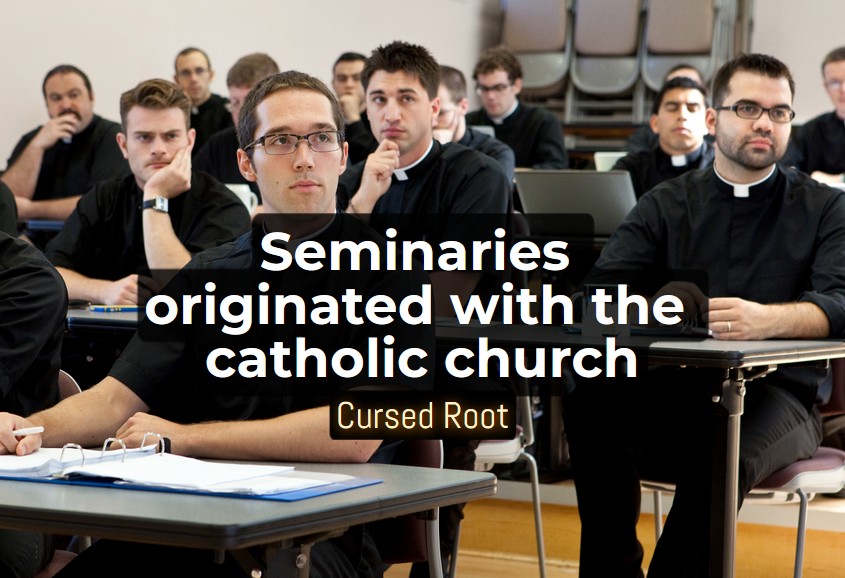
SATAN’S SEMINARIANS [podcast]
Satanic Seminarian System
People have to be first indoctrinated in order to go forth and indoctrinate others, their prey. This is the purpose of seminarians.
What could possibly sound more innocent than a man wanting to serve God going to seminary, right?
BEWARE OF THE SEMINARIANS WHO ARE THE SCRIBES AND PHARISEES OF OUR DAY! Satan loves to use that which sounds noble and spiritual and yet is not biblical. There are no seminaries in the New Testament! And it’s not biblical for a good reason. God’s Divine wisdom. To protect His body. Let’s stay with the Word saints!
SOME of the most pitiful deceivers I’ve ever conversed with have had a so-called “higher education.” In reality, there’s no such thing as a “higher education” outside of learning directly from the Most High Himself, out of the never-changing, crowning jewel literary work in His universe, the Holy Bible (2 Timothy 3:16-17).
HAVE you noticed the lightweight seminarians who peddle their half-truth false gospel, OSAS, calvinism, etc and how they market their community to build their church busine$$?
We should note that in general Christ warned us to “beware of men.” (Matthew 10:17) Jesus told us to beware of specific classes of sinful men. In doing so perhaps to some degree the Son of God was stereotyping. Here Jesus warns us to beware of the religious leaders (seminarians) and civil rulers and perhaps because they could do the most damage: “And he charged them, saying, Take heed, beware of the leaven of the Pharisees, and of the leaven of Herod.” (Mark 8:15)
The moment Jesus saved us, He inducted us into the school of the Holy Ghost and Word of God! THAT’S how God prepares His people for ministry! Seminary is a cheap substitute, waste of time and money (Psalms 119:105; Acts 1:8; 2 Timothy 2:15, etc.). Christ sends men to the cross and Pentecost (Holy Spirit baptism) and never to the seminaries of mere sinful men.
Who needs a seminary to learn God’s Word? – only a lazy man who refuses to lay down his life in this fleeting world and study to learn God’s Word intimately. Such a man is “not valiant for the truth” and so will be turned over to “strong delusion.” (Jeremiah 9:3; 2 Thessalonians 2:9-12)
“We have also a more sure word of prophecy; whereunto ye do well that ye take heed, as unto a light that shineth in a dark place, until the day dawn, and the day star arise in your hearts: 20 Knowing this first, that no prophecy of the scripture is of any private interpretation. 21 For the prophecy came not in old time by the will of man: but holy men of God spake as they were moved by the Holy Ghost.” 2 Peter 1:19-21
Personally, I waste no time on early church fathers or church history. They weren’t ordained, sanctioned by God exclusively to pen the words of Holy Writ, the Bible, which is God’s Word and the highest divine authority (2 Peter 1:19-21; 2 Timothy 2:15; 3:16-17). What’s it matter if you know what they said? The LORD didn’t ordain them to communicate His truth to the world. This does nothing but create confusion (1 Corinthians 14:33). Many would rather listen to what mere men had to say about God and the Bible than to search, study, and learn for themselves what God said in His own Word. The LORD has always instructed His people to study and learn and attend to HIS words (Deuteronomy 4, 6, 11, Isaiah 34:16, etc.).
“Study to shew thyself approved unto God, a workman that needeth not to be ashamed, rightly dividing the word of truth.” 2 Timothy 2:15
Seminarian Repentance
Attention seminarian or Bible College student, graduate: Not only does seminary not prepare you to be used of God, it gives you many things to unlearn and costs you much more than just a lot of wasted money. The ONE who saved you (if you are in fact saved) is the only ONE who can sanctify and prepare you to serve HIM. Seminary is at its root, apostasy, a departing from God to mere sinful men. If you claim to be born again and yet run to men to prepare you, there should be great concern (Galatians 1:16-17). PLAIN PROOF: Today’s apostate modern so-called “churches” become as they are – ichabod – by way of the jesuit-trained seminarian hirelings who drove them headlong into that apostasy. Seminiarian Apostasy Busted and Exposed!
ONLY JESUS can call, prepare and ordain a man to His work! All other “ordinations” and certifications are a fraud! John 15:16 !!!
There were no seminarians in the New Testament except those of the hell bound pharisees.
GOD is unchanging. Jesus sent no one to seminary. Jesus sends men to the cross then Pentecost! Otherwise a man is not fit for ministry. Seminary does not qualify a man for ministry. No, in fact, seminary puts a man light years behind, having many things he must now denounce and overcome and rid his life of. Repent and denounce all your “higher learning.” Until then, you are on your own, full of foolish pride and rebellion and the LORD will not use you (James 4:6-10). Paul denounced his “higher learning” trophies to know, be known of, and used by the LORD! (Philippians 3).
“Despite God’s word commanding men not to boast in their wisdom, and despite being told that “not many wise according to the flesh” are called, today’s evangelical landscape is replete with scribes and pharisees whose default question is, ‘By what authority do you do these things?’ They put their stock in how many credit hours they have obtained at such and such a seminary. Seminary credentials never qualified a man for God’s service, nor does a lack of “formal training” nullify what God approves. Indeed, God has chosen the foolish things of this world to confound the wise (1 Corinthians 1:27) When God calls anyone to a particular task, it matters not if others approve.” Servus Christi
DOES this not sum up what ministry is? Read closely: “For Ezra had prepared his heart to seek the law of the LORD, and to do it, and to teach in Israel statutes and judgments.” (Ezra 7:10)
We must go back further than the “reformation.” Nothing needed to be RE-formed…. because we have a Bible which is the final divine authority (Mark 13:31; 2 Timothy 3:15-17; 2 Peter 1:19-21, etc.). Many of the “reformers” were absolute heretics such as the demon possessed murderous maniac, John Calvin.
YOU see, in seminaries, their premise for teaching church history and about the reformers/reformation is so that their students will be able to discuss such when the topic comes up. But wait, you see THEY, the false priesthood of seminarians are the very ones who created that premise! Called out men must know God’s Word, not church history! SATAN is at work misdirecting men from simply learning God’s Word and walking in the power of the Holy Spirit. So, he’s diverted seminarians from simply learning Scripture using a curriculum that includes pagan prayer practices (contemplative prayer/spiritual formation), church history, and marketing. Jesus never did nor ever will send anyone to a seminary! The Son of God sends men who are truly in His will to the cross and to Pentecost!
Jim Borge writes: “As a young man, I was taught to believe that the Reformation was a great thing. As an older man I have grown to believe that the Church never needed reformation, it needed regeneration.”
IF you went to seminary or Bible college, perhaps the LORD would today lead you to repent of this work of the flesh, denounce it, and announce you utter dependence upon Him! Paul denounced all of his higher education to know and serve Christ (Philippians 3).
Sadly, most seminarians learn the lies of the protestant reformers instead of learning God’s pure Word!
The idea of “reformation” is just another lie and deception. Caution: Paul Washer is a calvinist … we don’t need “reformation” … never did! We need to simply get back to the “old paths” which is the Holy Scriptures! (Jeremiah 6:16) The LORD has given us “ALL things” in His Word! (2 Peter 1:3-4) The insidious, lying idea of a “reformation” is that something needs to be re-formed or formed again! But this is another lie from Satan because God’s Word has been perfect from the beginning and has “all” that we need! Beware. The “Protestant Reformation” was full of devils who believed and taught “reformed theology” and the diabolical system of “calvinism.” Run!
Bottom line: EVERYTHING we need God gave us in His Word and it doesn’t seminary to study and learn God’s Word!
Satan’s seminarians are his invention to put the church on ice!
Thinking of going to seminary? Before you do, read this post.
“What one generation tolerates, the next generation will embrace.” John Wesley
YOU show me a church “pastored” by one of Satan’s seminarians and I will show you a cold, dead, apostate sham!
Today the embrace, connection, and fornication between seminaries and the churches is an embracing of that which was tolerated in generations past and has brought epidemic apostasy in the local churches. The Methodist church is a prime example.
John Wesley was the founder of the Methodist church which is now a dead denomination and has been for a long time. Yet, Wesley was a firebrand for Christ who traveled over 150,000 miles by horseback to spread the Gospel of Jesus Christ. He preached over 40,000 messages from God’s Word in his lifetime!
It was only when the Methodist church began requiring it’s preachers to have a seminary degree that the fire of God extinguished (Ichabod) and the Holy Spirit was quenched. Today the Methodist church is dead men’s bones due to trusting in the flesh, degrees, etc., and not desiring and depending on the divine power of the Word and Holy Spirit.
SATAN HAD A PLAN TO ICE THE FIRE OF THE HOLY SPIRIT IN THE CHURCHES AND IT WORKED – AS FAR AS THE VISIBLE BUILDING-BASED CHURCHES GO.
Simple Scheme: If Satan can ice the seminarians, he ices the people they speak to.
The seminary church system has never nor ever will work to fulfill God’s stated will for His New Testament church. It’s a satanic fraud and counterfeit that has replaced the stated will of the LORD! “Antichrist” means simply “in place of.”
The Pharisees
The hell bound hypocritical pharisees were the seminarians of Christ’s day (Matthew 23).
EVERY catholic priest is seminary trained. What does that tell you?
Calvinistic wolves posing as pastors are seminarian graduates.
What does that tell you? Jude 3-4
Today they control nearly all building based churches.
But wait, don’t men who servant lead need to know the Word? Yes, but that in no way necessitates a “higher learning” center where mere men are in control and inevitably will contaminate.
MESSAGE RECEIVED:
“It does take a little training to rightly divide the Word. Of Truth.”
REPLY:
Yes it sure does …. no seminarian needed which without fail indoctrinates it’s students with extra-biblical heresies no different than the training received by the pharisees/false leaders/seminarians of Christ’s day (Mark 7:6-9).
ORGANIC, HOME BIBLE FELLOWSHIPS IS THE WAY THE EARLY CHURCH BEGAN AND SHOULD BE FUNCTIONING TODAY (ACTS 2:42-47).
Beware of the Seminary Salesmen!
Interestingly, when one searches the internet concerning the case for or against seminary training, he may just find this to be the only piece written from a biblical perspective and against seminary training. In perusing some of the many pro-seminary articles, one will search in vain to find much, if any Scripture. These pro-seminary sales pieces were apparently written by seminarians – using little or no Scripture. One thing is for certain: Jesus and His apostles never once instructed anyone to go to a higher learning facility.
TRULY REPENTING, surrendering your whole being, reputation, and will to Christ, getting baptized with the Holy Ghost, and organically studying God’s Word is the divine equipment for ministry, not seminary!
GOD NEVER CALLED ANYONE TO GET A SEMINARY DEGREE. IF SO JESUS WOULD HAVE TOLD HIS 12 TO GO TO A “HIGHER LEARNING” INSTITUTION. NO, JESUS CALLED HIS 12 AND IS CALLING US TO DIE – TO DENY SELF, TAKE UP THE CROSS, AND FOLLOW HIM! LET’S REPENT SAINTS, THAT’S WHERE IT ALL STARTS, BEGINNING WITH A DIVINE REFRESHING IN OUR SPIRITS! (ACTS 3:19)
Paul had more “higher learning” than 10 seminarians combined and he denounced it all as “dung” (crap) to know and to learn and to teach Christ! Study Philippians 3 afresh.
Jesus led Paul to denounce all of his higher learning – read Philippians 3 afresh with this in mind … he counted it dung … when I did this – denounced my formal education – the LORD delivered me and there was an increased anointing …. only Jesus can ordain us and anoint us to do HIS work – “Ye have not chosen me, but I have chosen you, and ordained you, that ye should go and bring forth fruit, and that your fruit should remain: that whatsoever ye shall ask of the Father in my name, he may give it you.” John 15:16
THE FRUIT OF THE MODERN CHURCHES IS CLEAR PROOF THAT SATAN IS AT THE ROOT OF THE SEMINARIANS WHO’VE DRIVEN THEM INTO APOSTASY!
Biblical Christian training does not involve organizations or institutions of sinful men – whose fruit reflects that of the sham false leaders of Christ’s day – who “love the praise of men more than the praise of God” (John 12:43) and set aside God’s Word to keep their own tradition (Mark 7:6-9). No institution of men needed for deep, thorough, organic, Spirit filled study of God’s Word. Jesus and His apostles never once instructed any person to go to a higher learning institution. In fact the seminarians of Christ’s day mocked the very Son of God specifically for not having a degree or the approval of sinful religious men (John 7:16-18).
“John 7:15 ‘How knoweth this man letters, having never learned?’ The Jews were amazed that Jesus had never formally trained in the Jewish law, had no degree, but had in-depth knowledge of the scriptures. But were did He get this knowledge? From His Father! Same as us!” Karen Cochran
To illustrate how indoctrinated seminarians become and why …. Have you ever noticed that when you see seminary students in coffee shops laboriously studying, you can spot them from a mile away – because they carry 3-10 commentary books of mere men around. That’s their curriculum instead of pure Scripture. Sometimes you can’t even find a Bible in the midst of their many books and when you do, it’s a lame, corrupted new per-version. SMH New Bible Versions and the Satanic Frauds who Invented them Busted and Exposed.
THERE’S A HUGE DIFFERENCE BETWEEN LEADING PEOPLE THROUGH SCRIPTURE AND INDOCTRINATING THEM IN EXTRA-BIBLICAL THEOLOGY SUCH AS THE DIABOLICAL SYSTEM OF CALVINISM/REFORMED THEOLOGY WHICH IS INTENTIONALLY DONE AT SEMINARIES.
One brother illustrates seminaries this way:
“Many colleges are just glorified roach motels…those who go in are infected and go back to infect the entire colony.” Nathan Noyes
JESUS told a seminarian of His day that he had to be “born again.” (John 3:3, 7) Obviously this man was not right with God. Nicodemus was a Pharisee and a member of the Sanhedrin mentioned in three places in the Gospel of John: He first visits Jesus one night to discuss Jesus’ teachings (John 3:1–21). Obviously Nicodemus was not a member of Christ’s family yet. This is clear, landmark proof that being religious and/or a leader in a religion or movement assures not that a person is truly a child of God. Hell is full of religious leaders, most of which are “false” according to Jesus (Matthew 7:15; 24:1,24; 1 John 4:1, etc.). The LORD never designed for His people to go to a school of “higher learning” but rather to receive the only Higher learning available – directly from the MOST HIGH Himself! Remember how the LORD told Ezekiel to simply eat His Word and then go speak those words? (Ezekiel 3)
The rebel at heart will do anything and everything except truly repent. He will mask his rebellion by spending several years and a small fortune to obtain a seminary degree, but like the hell bound false leaders of Jesus’ day, he will not repent.
“He answered and said unto them, Well hath Esaias prophesied of you hypocrites, as it is written, This people honoureth me with their lips, but their heart is far from me.” Mark 7:6
The profile of the seminarian is that he seeks the approval of sinful men and not God.
“And he said unto them, Ye are they which justify yourselves before men; but God knoweth your hearts: for that which is highly esteemed among men is abomination in the sight of God.” Luke 16:15
Sinful men always wants to insert themselves, legitimize and attempt to make prestigious their own personal certification and institutions where they reign and complicate the simplicity of divine truth and its instruction. Beware.
“Trust in the LORD with all thine heart; and lean not unto thine own understanding. 6 In all thy ways acknowledge him, and he shall direct thy paths. 7 Be not wise in thine own eyes: fear the LORD, and depart from evil.” Proverbs 3:5-7
Seminary will never make up for your refusal to authentically repent and get a real life with Christ! John 15:16
Personally, upon having attended 2 Bible colleges, I realized that many of the student, even those in their 4th year, were admittedly not born again. The fruit was obviousl
THERE was no such thing as a priesthood of professional clergy in Christ’s day or in the days of early church! (as far as HIS true kingdom is concerned) In fact, it wasn’t until the antichrist roman catholic cult formed that such a priesthood was instituted and has brought untold destruction since! In short, they’ve replaced the pure worship of Christ with everything under the sun! Jesus saw this coming and prophetically warned us about this when He said “Beware of false prophets, which come to you in sheep’s clothing, but inwardly they are ravening wolves.” (Matthew 7:15) Oh and “And many false prophets shall rise, and shall deceive many.”(Matthew 24:11) ….. Do you understand the import of Ezekiel 22:25-27? Here it is:
“There is a conspiracy of her prophets (false leaders) in the midst thereof, like a roaring lion ravening the prey; they have devoured souls; they have taken the treasure and precious things; they have made her many widows in the midst thereof. 26 Her priests (leaders) have violated my law (Word), and have profaned mine holy things: they have put no difference between the holy and profane, neither have they shewed difference between the unclean and the clean, and have hid their eyes from my sabbaths, and I am profaned among them. 27 Her princes in the midst thereof are like wolves ravening the prey, to shed blood, and to destroy souls, to get dishonest gain.” Ezekiel 22:25-27
The seminary system we see since the early New Testament centuries into the now is a clear manifestation and fulfillment of this prophecy given us by the LORD’s prophet Ezekiel. Exactly as Ezekiel warned, today there is a “conspiracy” among the fraternal order of seminarians who have a stronghold on the denominational franchises they run. Also as the prophet revealed “Her priests (leaders) have violated my law (Word).” (v26) The false prophet seminarians are man-fearing, man-pleasing hirelings who refuse to acknowledge, study, and preach the whole counsel of God’s Word (2 Timothy 4:1-4). Like the phony false priesthood of Christ’s day, they set aside the Word of God in order to keep the tradition and heresies they learned in seminary (Mark 7:6-9). In fact, this is a central biblical definition of false leaders and what they do – and we “know (discern) them by their fruit.” (Matthew 7:16, 20)
“He answered and said unto them, Well hath Esaias prophesied of you hypocrites, as it is written, This people honoureth me with their lips, but their heart is far from me. 7 Howbeit in vain do they worship me, teaching for doctrines the commandments of men. 8 For laying aside (rejecting) the commandment (Word) of God, ye hold the tradition of men, as the washing of pots and cups: and many other such like things ye do. 9 And he said unto them, Full well ye reject the commandment (Word) of God, that ye may keep your own tradition.” Mark 7:6-9
Satan’s Centralized System
We know from the revelation of Scripture that Satan has a well organized kingdom and uses his human agents and their systems to steal, to kill, and to destroy souls (Ezekiel 22:25-27; John 10:10; Ephesians 6:12).
Seminaries are a centralized organization of mere sinful men. SATAN is the centralizer! Think Babylon/Nimrod (Genesis 11). Think the upcoming centralized antichrist system (Revelation 13-14, 17-18). Yes, it’s God who has ordained that His assemblies of His people be autonomous and not controlled by a “headquarter” committee or centralized organization of modern pharisees who in most cases are indoctrinated into extra-biblical doctrines such as the cult of calvinism. Most pastors today are wolves who can’t even lead souls to Christ and deny the need for the baptism of the Holy Spirit (for starters). Satan always, without fail, perverts the men in control and then doles it out to those downstream (the churches). That’s why he centralizes and we are “not ignorant of his devices.” (2 Corinthians 2:11)
The Bible itself is the learning source for every saint. God’s Word is His centralized truth! (John 17:17; 2 timothy 3:16-17)
It’s real simple:
- Are you genuinely born again?
- Can you read?
- Do you have a King James Bible?
Case closed: You do not need to go to seminary. If you do, like the majority of seminarians, you may never return to the LORD to be used of Him and worse.
In the early church there were no professional clergymen as we see today in the apostate modern church world. This was Satan’s plan to denigrate and cease the power of the Holy Spirit which was poured out from Jesus on Pentecost and resulted in thousands being saved. Read Acts. At the hands of seminarian wolves, the modern church world is full of entertainment, marketing, and gimmicks and is plainly lukewarm and dead (Revelation 3:15-16). New Testament elders are not seen in the 27 book New Testament canon as those today who lord it over that which claims to be Christ’s flock. No, rather, elders in the early church were those who navigate and feed oversee (1 Peter 5:1-6). They were more like those who moderate the assemblies of God’s people in contrast with the seminary-trained, hi-jack artists we see in place today.
Seminaries are Wolf Factories! Beware!
“Many pastors have destroyed my vineyard, they have trodden my portion under foot, they have made my pleasant portion a desolate wilderness.” Jeremiah 12:10
Nancy Paul Cote writes: “Thanks again for your ministry’s articles. They so hit home and relate to my experiences of error. We were just talking about this in my new Berean Church yesterday. Both my husband and I can attest to this. Both of us were on fire for God and studied the word of God with our church ministries. We started out with an un-compromised Bible (KJB). Then, we listened to many say that to further our education with God we must go to a Bible College to get a degree to be more equipped for Ministry. Well, as we attended Bible College for 4 years I did not see our passion for biblical Truth growing—but declining. There were so many different views and different Bible Versions it only made me less prepared and more confused. We began relying on what the teachers said rather than what the Bible said because we were sure they know more because they had a degree, right? No, it was almost like I had to detoxify myself of all of man’s wisdom and get back into my KJB and fellowship with those with like-minded passion. I did just that in 2014. God has been so good to me. ‘Who is a wise man and endued with knowledge among you? let him shew out of a good conversation his works with meekness of wisdom. But if ye have bitter envying and strife in your hearts, glory not, and lie not against the truth. This wisdom descendeth not from above, but is earthly, sensual, devilish. For where envying and strife is, there is confusion and every evil work. But the wisdom that is from above is first pure, then peaceable, gentle, and easy to be entreated, full of mercy and good fruits, without partiality, and without hypocrisy. And the fruit of righteousness is sown in peace of them that make peace’ (James 3:13-18).”
False leaders have been the demise and damnation of millions. Hell is full of false leaders and those who chose to follow these wolves in sheep’s clothing instead of Christ.
“For the leaders of this people cause them to err; and they that are led of them are destroyed (in hell).” Isaiah 9:16
Jesus never told you to go to seminary. Rather, He commanded you to lay down your life right now and follow Him. Now read these words from Jesus and see if you need seminary to understand this simple truth:
“If any man will come after me, let him deny himself, and take up his cross daily, and follow me. 24 For whosoever will save his life shall lose it: but whosoever will lose his life for my sake, the same shall save it.” Luke 9:23-24
Professional clergymen have hi-jacked and ruined the life of Christ from that which feigns to be representing Him. Most of them came from Satan’s seminaries!
Seminarian wolves have hi-jacked the local churches and that’s why true followers of Jesus are gathering organically – without the contamination of professional clergy wolves. Individual believers and true ministers of Christ who are not part of their fraternal, Jesuit-trained order are intentionally shunned in the apostate churches and yet are fulfilling their call like Jesus and His apostles – without a building to contain them from reaching the people.
NEWS FLASH: SATAN CONTROLS THE SEMINARIES, CHURCH SYSTEMS, AND LOCAL CHURCHES.
If your thought and perspective of serving God is the vision of a so-called church building, you do not have a kingdom perspective and are in desperate need of repentance, deep Bible study, and praying that the LORD opens your eyes.
When you truly realize that the MOST HIGH, the very KING of kings saves and ordains you – and you truly fear Him and not men – that will be the only ordination you ever mention or acknowledge! (John 15:16) Those to truly know the LORD and obviously fear Him, do not seek the approval of mere sinful men, especially the “accursed” who preach another gospel (Galatians 1:10). | Pastors According to My Heart (Jeremiah 3:15)
THE TRUE DISCIPLE OF JESUS WILL NOT BE SELF-MADE OR SEMINARY-MADE BUT RATHER SAVIOR-MADE! SELAH! SUCH A MAN DILIGENTLY AND DAILY SEEKS THE FACE OF THE LORD IN A LIFE OF PRAYER AND BIBLE STUDY! LIKE THE ONE HE IS TRULY FOLLOWING, HE SEEKS NO APPROVAL OF MEN.
God never sends any man to seminary. They are self-sent. Jesus says to follow Him: He had no degree and was mocked by the hypocritical religious leaders of His day (John 7:15-18). God has not changed. Those who truly know and follow Christ entered into the school of the Holy Ghost and Word of God the day He saved them!!!
ANY LOCAL CHURCH THAT SEARCHES FOR OR WOULD EVEN TAKE AS AN ELDER A SEMINARIAN WHO HAD NOT REPENTED AND DENOUNCED HIS PHONY SEMINARY DEGREE IS AN APOSTATE CHURCH! JOHN 15:16
In the qualifications for an elder among Christ’s body, can you find the need to be degreed?
Biblical Qualifications for Overseers
“This is a true saying, If a man desire the office of a bishop, he desireth a good work.
2 A bishop then must be blameless, the husband of one wife, vigilant, sober, of good behaviour, given to hospitality, apt to teach;
3 Not given to wine, no striker, not greedy of filthy lucre; but patient, not a brawler, not covetous;
4 One that ruleth well his own house, having his children in subjection with all gravity;
5 (For if a man know not how to rule his own house, how shall he take care of the church of God?)
6 Not a novice, lest being lifted up with pride he fall into the condemnation of the devil.
7 Moreover he must have a good report of them which are without; lest he fall into reproach and the snare of the devil.” 1 Timothy 3:1-7
THERE IS NOT ONE MENTION OF A HIGHER LEARNING DEGREE IN THE BIBLICAL LIST OF QUALIFICATIONS FOR AN ELDER. SUCH HAS BEEN ADDED BY MEN AND DEVILS.
The Son of God Didn’t have a Degree!
“And the Jews marvelled, saying, How knoweth this man letters (Jesus had no degree from sinful men), having never learned? (no formal education)
16 Jesus answered them, and said, My doctrine is not mine, but his that sent me.
17 If any man will do his will, he shall know of the doctrine, whether it be of God, or whether I speak of myself.
18 He that speaketh of himself seeketh his own glory: but he that seeketh his glory that sent him, the same is true, and no unrighteousness is in him.” John 7:15-18
On this passage, William MacDonald, author of the Believer’s Bible Commentary, notes:
“7:15 Those who heard the Savior marveled. Doubtless it was His knowledge of the OT (Scriptures) that impressed them most. But also the breadth of His learning and His ability to teach attracted their attention. They knew that Jesus had never been to any of the great religious schools of that day, and they could not understand how He could have such an education as He did. The world still expresses amazement and often complains when it finds believers with no formal religious training who are able to preach and teach the Word of God.
7:16 Once again it is beautiful to see how the Lord refused to take any credit for Himself, but simply tried to glorified His Father. Jesus answered simply that His teaching was not His own, but that it came from the One who sent Him. Whatever the Lord Jesus spoke and whatever He taught were the things which were the things His Father told Him to speak and to teach. He did not act independently of the Father.
7:17 If the Jews really wanted to know whether His message was true or not, it would be easy for them to find out. If anyone really wills to do God’s will, then God will reveal to him whether the teachings of Christ are divine or whether the Lord was simply teaching what He Himself wanted to teach. There is a wonderful promise here for everyone earnestly seeking the truth. If a person is sincere, and truly wants to know what is the truth, God will reveal it to him. “Obedience is the organ of spiritual knowledge.’”
7:18 Anyone who speaks from himself, that is, according to his own will, seeks his own glory. But it was not so with the Lord Jesus. He sought the glory of the Father who sent Him. Because His motives were absolutely pure, His message was absolutely true. No unrighteousness was in Him.
Jesus was the only One of whom such words could be spoken. Every other teacher has had some selfishness mixed in his service. It should be the ambition of every servant of the Lord to glorify God rather than self.”
Cross-Less Curriculums of Seminaries
“Enemies of the cross of Christ.” Philippians 3:18-19
CHRIST’S KING-DOM IS ALLLL ABOUT KING JESUS!!! AND NOT SOME CHUMP WHO’S BUILDING A CHURCH BUSINESS BY ENTERTAINING SELF-SEEKING GOATS WITH MUSIC AND TONED DOWN CLICHE’S, CATCHY PHRASES AND NEUTERED, “SUCCESS” MESSAGES.
“I once heard a wise old pastor say, ‘The best way to strip a man of his Christianity is to send him to Seminary.’” Gina Martin
“I have learned more from born again evangelists who never went to seminary, than those who did. They preach from the heart, keep the message plain and easy to understand, and know their Bible inside out!! More sacrilege and blasphemy has come from seminaries than I can count here. The Holy Spirit will God us in all we do, if we let Him.” Donna Hawthorne Riegler
Jeff Scholz writes: “God’s anointing is in His word. Even someone who is newly born again that barely reads the Bible, when they pick it up, even for the first time, as soon as they start reading God is already speaking to that individual. The LORD can call and use anybody at any time, any one of His people.”
Saints, the seminaries and their seminarian agents have created a stronghold over many parts of that which claims to be Christendom, smothering and snuffing out the life of Christ. Beware. Pray for understanding and insight and spread the light of truth on this darkness that has blanketed the minds of so many. These are the Nicolaitan devils, the very agents of Satan himself and their false systems and doctrines Jesus says He hates (Revelation 2:6, 15). Nicolaitan Devils Busted and Exposed!
Satan uses seminaries and seminarians in pulpits to produce these false leaders and to intercept and distort that innocence of the new believer who is a new creature in Christ by way of being now born again (2 Corinthians 5:17-18).
In the vast majority of local churches today, little emphasis is placed on the divine priorities of essential biblical truth such as the divinity and holiness of the LORD, the necessity of the daily cross and prayer, etc.
SEMINARIANS ARE TAUGHT TO READ WHAT OTHER MEN SAY ABOUT THE BIBLE INSTEAD OF SIMPLY STUDYING THE BIBLE FOR THEMSELVES. THEY ARE COMMENTARY INTENSIVE INSTEAD OF SCRIPTURE INTENSIVE!
I’ve been to two Bible colleges and many of those who attended (the students) were not even born again! Many of them openly and laughingly admitted to such!
Having a seminary degree means that someone has been taught well to not personally study and assimilate the whole counsel of God’s Word in an honest manner but rather to manipulate Scripture to teach and defile others which such diabolical systems of theology as calvinism and un-conditional eternal security. Calvinism is the Devil’s System and all who teach it are his wolves! Beware.
True servants of the LORD must be called and prepared by the LORD, not mere men who falsely feign to be Christ’s representatives. | Divine Preparation for Ministry
“Taught of God” …. (1 Thessalonians 4:9)
“The Holy Ghost teacheth”! 1 Corinthians 2:13
Seminary prepares no one for ministry – Only Jesus can do that in the life of the called-out, obedient men who choose to do things HIS way and not man’s way! “for many be called, but few chosen.” (Matthew 20:16)
SAVE YOUR MONEY AND TIME – GO TO THE SAVIOR, NOT SEMINARY!
If Jesus created, found, saved, and called you, can He not prepare you? (John 15:16)
Where is your faith? Is it in men or God? (Hebrews 11:6)
Some would argue that the world is more civilized now than it was 2,000 years ago when Christ came. Nonsense. They therefore argue that seminaries are a product of our enlightened age. Nonsense.
In the first century, we know of certainty that there was much emphasis placed upon the prestigious institutions of higher religious learning. This is further established by the mocking mention of Jesus not having a degree in John 7:15, and Paul’s credentials – being taught at “the feet of Gamaliel” and “an Hebrew of the Hebrews; as touching the law, a Pharisee.” (Acts 22:3; Philippians 3:5) Obviously there were great centers for religious learning, namely Jewish, in the days of our LORD and His apostles. Yet not only do we have not a single instance of Jesus or His apostles sending anyone to a higher learning center, the graduates of those institutions were actually the greatest persecutors of Christ and His apostles. They were antichrists. Nothing has changed! We have the same scenario transpiring all around us today in the professing church world.
There is no hate here toward men but rather the devil who has deceived men, leading them away from God while claiming to be representing Christ …. this subversion is characteristic of “the spirit of antichrist.”
The very reason we don’t have more intense and diligent Bible learning in the church world is due to seminarian leadership. Meditate on this. Seminary is like the catholic cult – designed by the enemy to keep people out of God’s Word for themselves.
The way “the spirit of antichrist” works…. is while feigning to be representing Christ, it misrepresents Christ. Subversive, insidious deception perpetrated against Christ and His people (2 Thessalonians 2:1-12; 1 John 4:3).
ANYONE WHO CRASSLY DISMISSES THE FACT THAT JESUS NEVER SENT ANYONE TO SEMINARY IS ALREADY OPERATING ON HUMAN WISDOM AND NOT GOD’S WISDOM AND IS DESTINED FOR A WASTED LIFE OF WOLFERY!
Seminaries train men to please men, not God. They train men to operate in devil-inspired and man-controlled churches which are apostate, Ichabod!
The Almighty is not impressed with a seminary degree and in fact cannot use you until you repent and denounce it and announce your full and complete dependence upon Him!
Seminaries create a type of brotherhood or fraternal order which causes the sin of respect of persons (Romans 2:11). In this God-less connection, there is respecter of persons which is a clear and sinful violation of God’s Word (James 2:9).
When some Jews got saved, Jesus told them to continue in the Word and as they did they would know His truth and be made free. Christ had all the opportunity in His Universe to direct these new believers to go to some higher learning institution that had set itself up. No such mention from the Son of God! Here it is:
“Then said Jesus to those Jews which believed on him, If ye continue in my word, then are ye my disciples indeed; 32 And ye shall know the truth, and the truth shall make you free.” John 8:31-32
Heaven’s King here taught these new believers that His truth – knowing and obeying it – would make them His disciples and make them free. Jesus clearly infers here that they could and would definitely know His truth if they “continued in” His “Word.”
To be Holy Ghost filled is very important per Scripture and yet not enough. You must have both the power and revelation of the Holy Spirit and astute adherence to the “sound doctrine” of Holy Scripture (2 Timothy 2:15; 3:15-17, etc.).
NO, YOU DON’T NEED SEMINARY, YOU NEED THE SAVIOR! MORE OF JESUS IS THE ANSWER AND PREREQUISITE FOR MINISTRY.
“Now when they saw the boldness of Peter and John, and perceived that they were unlearned and ignorant men, they marvelled; and they took knowledge of them, that they had been with Jesus.” Acts 4:13
Seminaries are an open pit, drawing men who were never called of God in the first place and intercepting, indoctrinating and destroying men who are actually God-called, making them “twofold more the child of hell than yourselves.” (Matthew 23:15).
Many who sign up for seminary see what they view as an easy profession. All they have to do is get the degree and they can send out resumes. Seminaries are a breeding ground for self glory which is completely contradictory to the teachings of Jesus.
Saints, this pride we see coming from people who claim to be Christian leaders because they attended a seminary is proof of the truth that seminaries do not prepare people to serve God, period. Many are full of self and may God grant repentance. See John 7:18 – “He that speaketh of himself seeketh his own glory: but he that seeketh his glory that sent him, the same is true, and no unrighteousness is in him.”
“Higher learning” is in reality indoctrination, brainwashing.
Is the world getting smarter or dumber? Want to get humbled and embarrassed? Look up the 8th grade primer from just 100 years ago here in America. Most college graduates couldn’t answer near half of those questions. Shocking dumb down! In the same way, preachers of old knew God’s Word and had mountains of Scripture from the King James Bible committed to memory.
EXAMPLE OF THE PROPHESIED GREAT FALLING AWAY / APOSTASY (2 THESSALONIANS 2: NOT 1 SEMINARY TODAY USES THE KING JAMES BIBLE WHICH IS THE PRESERVED WORD OF GOD TO THE ENGLISH SPEAKING PEOPLE OF THE WORLD (PSALMS 12:6-7).
Prayer of Repentance: Father, I here and now acknowledge You and how You alone made, saved, and called me for Your purposes. In the name of Jesus Christ, right this moment, I confess my sin of pride and self-idolatry and for not seeking Your face in this matter. I now see how I went my own way and not Yours. Please forgive me now LORD and instill thy holy fear in my bosom, leading me in Your paths to know and be prepared to be used of You. In Jesus’ name, amen!
Seminaries Slammed!| Today’s False Church System
Pastors | Prepared to be Used | Satan’s Seminaries | Support | STORE | Podcasts | Eternal Security/OSAS | Accounted Worthy to Escape [podcast] | Eternal Security Exposed | Sealed? | The Return of Christ | Lie of the Ages [podcast] | 10 Questions about Eternal Security | Is Salvation Eternal? | The Damning Myth of Unconditional Eternal Security [podcast] | The Essential of Fearing God | The KING is Coming [podcast]


Abiding
The Curse of a Divided Heart and Blessing of a Whole Heart! [podcast]

Israel’s heart was divided. The solution.
“Their heart is divided; now shall they be found faulty: he shall break down their altars, he shall spoil their images … 12 Sow to yourselves in righteousness, reap in mercy; break up your fallow ground: for it is time to seek the LORD, till he come and rain righteousness upon you.” Hosea 10:2, 12
King Asa: Tragic end of an otherwise obedient, fruitful, God-glorifying life….
Are you blessed or cursed?
“Thus saith the LORD; Cursed be the man that trusteth in man, and maketh flesh his arm, and whose heart departeth from the LORD.” Jeremiah 17:5
King Asa trusted the physicians and not the LORD and he paid dearly.
“And Asa in the thirty and ninth year of his reign was diseased in his feet, until his disease was exceeding great: yet in his disease he sought not to the LORD, but to the physicians.” 2 Chronicles 16:12
Feet speak of foundation. Without feet, physically we cannot stand. Without a sound foundation of truth, of God’s Word in our lives, we shall not stand. Read Matthew 7:19-29.
One writes notes the following about the meaning of feet in God’s Word:
“Why Are Feet Important in the Bible? Just as men and women stand upon their feet as the foundation of upright posture, Bible verses also use feet as a euphemism to represent a strong foundation in various circumstances. Feet are not referenced as we see them today, but they are used as symbols to represent greater metaphorical concepts, such as guidance or direction.
The feet represented something that was common to all people but used differently. For example, one of the most noted scripture texts involving feet is Psalm 119:105, ‘Thy word is a lamp unto my feet, and a light unto my path.’ This emphasizes how the feet are used to travel and traverse. Yet, without the word, the traveler is left walking in the dark without a known path.
Essentially, the feet are referenced as a critical part of life as walking was commonplace. We naturally travel where our feet lead us and the Bible verses use feet to represent a means of traveling through life itself. If we walk down a dark path, we are likely to stumble. If we walk down a holy path, we are sure to please God. All of this is facilitated symbolically by the feet.”
The foundation truth we learn in God’s Word and obedience to it determines the direction of our lives.
“As ye have therefore received Christ Jesus the Lord, so walk ye in him: 7 Rooted and built up in him, and stablished in the faith, as ye have been taught, abounding therein with thanksgiving.” Colossians 2:6-7
Becoming Rooted and Grounded in Christ
Like Asa, many today trust the counsel of mere men, such as doctors and not God. This doesn’t mean going to a doctor is a sin and yet, the true disciple will primarily trust and obey and be led of the LORD, not men.
“But without faith it is impossible to please him: for he that cometh to God must believe that he is, and that he is a rewarder of them that diligently seek him.” Hebrews 11:6
Read Hebrews 3-4 prayerfully for the eternal danger of having “an evil heart of unbelief” AFTER being saved. Repentance required.
“They speak vanity every one with his neighbour: with flattering lips and with a double heart do they speak.” Psalms 12:2
Got depression? Are you seeking the LORD in true repentance whereby He will grant you great joy? (Psalms 51; 2 Timothy 1:7) Or, are you seeking out and trusting the mere human, the finite pundits of this fleeting world?
“But ye are forgers of lies, ye are all physicians of no value.” Job 13:4
Those who trust human physicians and not the Great Physician, are cursed, not blessed. Their faith in mere men reveals their utter rebellion.
“See, I have this day set thee over the nations and over the kingdoms, to root out, and to pull down, and to destroy, and to throw down, to build, and to plant.” Jeremiah 1:10
2 Chronicles 15:17 – Upon becoming king in Judah, Asa, having inherited an idolatrous, lukewarm people, system… he began to command that…
- The people do that which is right in God’s eyes (2 Chronicles 14:2)
- That all idolatrous altars we torn down (2 Chronicles 14:3)
- That God’s people seek His face (2 Chronicles 14:4)
- That idol altars in the cities of Judah be removed – “and the kingdom was quiet before him” (2 Chronicles 14:5) ….. Proverbs 1:33
- Fenced cities be built …. so the land could be at rest, at peace, and not fear the enemy (2 Chronicles 14:6)
- The people be involved in building fenced, walled, protected cities – “Therefore he said unto Judah, Let us build these cities, and make about them walls, and towers, gates, and bars, while the land is yet before us; because we have sought the LORD our God, we have sought him, and he hath given us rest on every side. So they built and prospered.” (2 Chronicles 14:7) …… 1 Chron 16:11
- Great military be built (2 Chronicles 14:8)
“The LORD is with you, while ye be with him; and IFFFF ye seek him, he will be found of you; but IF ye forsake him, he will forsake you.” 2 Chronicles 15:2
“But the high places were not taken away out of Israel: nevertheless the heart of Asa was perfect all his days.” 2 Chronicles 15:17
“Well; because of unbelief they were broken off, and thou standest by faith. Be not highminded, but fear: 21 For if God spared not the natural branches, take heed lest he also spare not thee. 22 Behold therefore the goodness and severity of God: on them which fell, severity; but toward thee, goodness, if thou continue in his goodness: otherwise thou also shalt be cut off.” Hebrews 11:20-22
“The wicked shall be turned into hell, and all the nations that forget God.” Psalms 9:17
“Now consider this, ye that forget God, lest I tear you in pieces, and there be none to deliver.” Psalms 50:22
“Believe in the LORD your God, so shall ye be established; believe his prophets, so shall ye prosper.” 2 Chronicles 20:20
God blesses those who trust Him and curses, removes His blessings from those who once trusted Him and yet now have forgotten Him. When we willingly offer ourselves as living sacrifices to the LORD our God, He avenges us of all our enemies (Judges 5:2) …. “But IF thou shalt indeed obey his voice, and do all that I speak; then I will be an enemy unto thine enemies, and an adversary unto thine adversaries.” (Exodus 23:22)
“WHEN” does God avenge us of our enemies? “WHEN” does God judge our enemies?
“Praise ye the LORD for the avenging of Israel, WHEN the people willingly offered themselves.” Judges 5:2
When we offer our lives a living sacrifice unto the LORD – that is, we simply surrender this life to Him – the subduing of our enemies begins.
“I beseech you therefore, brethren, by the mercies of God, that ye present your bodies a living sacrifice, holy, acceptable unto God, which is your reasonable service. 2 And be not conformed to this world: but be ye transformed by the renewing of your mind, that ye may prove what is that good, and acceptable, and perfect, will of God.” Romans 12:1-2
Asa reigned as king in Judah for 39 years (2 Chronicles 14-16).
In his final days, after obeying God and bringing much needed reform to the people of God, Asa forgot the LORD, and had grown cold in his faith and was therefore cursed with a divided heart.
All those who trust mere men, just because they have a white coat on and are called “doctor”, are going to die as did king Asa who trusted in earthly physicians, instead of the Great Physician! Repent now sinner.
“Trust in the LORD with all thine heart; and lean not unto thine own understanding. 6 In all thy ways acknowledge him, and he shall direct thy paths. 7 Be not wise in thine own eyes: fear the LORD, and depart from evil.” Proverbs 3:5-7
Are you a pessimistic pansy or an optimistic overcomer? Are you like the 10 spies or the 2 who entered the promised land while the 10 sad sack whiners were shut out? “The righteous are bold as a lion.” (Proverbs 28:1) Jesus asks “WHERE is your faith?” (Luke 8:25) Repenting for real and putting all your trust in the LORD is essential – and no one will be in the promise land of Heaven without sound, solid faith in God. “Without faith it is impossible to please him.” (Hebrews 11:6). “Thus saith the LORD; Cursed be the man that trusteth in man, and maketh flesh his arm, and whose heart departeth from the LORD.” (Jeremiah 17:5)
Read Revelation 2-3.
Remember the woman Jesus, the Great Divine Physician made whole of her issue who had previously spent all she had on human physicians?
“And a certain woman, which had an issue of blood twelve years, 26 And had suffered many things of many physicians, and had spent all that she had, and was nothing bettered, but rather grew worse, 27 When she had heard of Jesus, came in the press behind, and touched his garment. 28 For she said, If I may touch but his clothes, I shall be whole. 29 And straightway the fountain of her blood was dried up; and she felt in her body that she was healed of that plague. 30 And Jesus, immediately knowing in himself that virtue had gone out of him (accessed by faith in Him), turned him about in the press, and said, Who touched my clothes? 31 And his disciples said unto him, Thou seest the multitude thronging thee, and sayest thou, Who touched me? 32 And he looked round about to see her that had done this thing. 33 But the woman fearing and trembling, knowing what was done in her, came and fell down before him, and told him all the truth. 34 And he said unto her, Daughter, thy faith (in God not men) hath made thee whole; go in peace, and be whole of thy plague.” Mark 5:25-34
You claim to be trusting God but you take a mood drug? I don’t think so. MOOD DRUGS ARE FOR THE WICKED UNBELIEVERS. PERIOD. REPENT.
When a person resorts to using a drug to uplift their mood, they are loving and believing the world more than God, forfeiting the blessing of God for a cheap substitute, and manifesting their contempt for the LORD, their unbelief. A born again, presently abiding 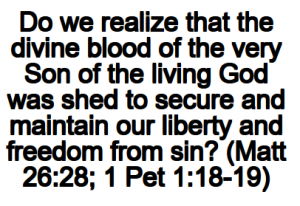 disciple of Jesus has all the fruit of the Holy Spirit which include, “Love, joy, peace…” (Galatians 5:22-23) God gives His people “power… love, and a sound mind.” (2 Timothy 1:7) God’s Word has the answer to “ALL things that pertain unto life and godliness” and that specifically includes a “sound mind.” (2 Peter 1:3-4) Holy Scripture specifically uses the terms “sound mind” and “sound heart” which come only from learning and adhering to “sound doctrine.”
disciple of Jesus has all the fruit of the Holy Spirit which include, “Love, joy, peace…” (Galatians 5:22-23) God gives His people “power… love, and a sound mind.” (2 Timothy 1:7) God’s Word has the answer to “ALL things that pertain unto life and godliness” and that specifically includes a “sound mind.” (2 Peter 1:3-4) Holy Scripture specifically uses the terms “sound mind” and “sound heart” which come only from learning and adhering to “sound doctrine.”
We live in a fallen world and were born in sin. Via the things that have happened to us and that we ourselves have perpetrated on others, fragmentation of our hearts has occurred. Only One can make us whole.
“And there was delivered unto him the book of the prophet Esaias. And when he had opened the book, he found the place where it was written, 18 The Spirit of the Lord is upon me, because he hath anointed me to preach the gospel to the poor; he hath sent me to heal the brokenhearted, to preach deliverance to the captives, and recovering of sight to the blind, to set at liberty them that are bruised, 19 To preach the acceptable year of the Lord.” Luke 4:17-19
“And the very God of peace sanctify you wholly; and I pray God your whole spirit and soul and body be preserved blameless unto the coming of our Lord Jesus Christ. 24 Faithful is he that calleth you, who also will do it.” 1 Thessalonians 5:23-24
“He healeth the broken in heart, and bindeth up their wounds.” Psalms 147:3
Counting it all Joy
“My brethren, count it all joy when ye fall into divers temptations; 3 Knowing this, that the trying of your faith worketh patience. 4 But let patience have her perfect work, that ye may be perfect and entire, wanting nothing. 5 If any of you lack wisdom, let him ask of God, that giveth to all men liberally, and upbraideth not; and it shall be given him. 6 But let him ask in faith, nothing wavering. For he that wavereth is like a wave of the sea driven with the wind and tossed. 7 For let not that man think that he shall receive any thing of the Lord. 8 A double minded man is unstable in all his ways.” James 1:2-8
Through the trials we face in this life, we must learn to “count it all joy when ye fall into divers temptations”, trust God not men, ask for and rely on His wisdom and not waver, but rather finished our course trusting and walking with Christ to the end of our lives.
“I have fought a good fight, I have finished my course, I have kept the faith:” 2 Timothy 4:7
“For God is not unrighteous to forget your work and labour of love, which ye have shewed toward his name, in that ye have ministered to the saints, and do minister. 11 And we desire that every one of you do shew the same diligence to the full assurance of hope unto the end: 12 That ye be not slothful, but followers of them who through faith and patience inherit the promises.” Hebrews 6:10-12
The Whole Heart
“And all Judah rejoiced at the oath: for they had sworn with all their heart, and sought him with their whole desire; and he was found of them: and the LORD gave them rest round about.” 2 Chronicles 15:15
The result of seeking the LORD with a whole heart is that He gives us “rest round about.”
“But whoso hearkeneth unto me shall dwell safely, and shall be quiet from fear of evil.” Proverbs 1:33
9 Times in the book of Psalms the words “Whole Heart” appear. Here’s the first 3 of that collection:
“I will praise thee, O LORD, with my WHOLE HEART; I will shew forth all thy marvellous works.” Psalms 9:1
“Praise ye the LORD. I will praise the LORD with my WHOLE HEART, in the assembly of the upright, and in the congregation.” Psalms 111:1
“Blessed are they that keep his testimonies, and that seek him with the WHOLE HEART.” Psalms 119:2
PRAYER: Dear heavenly Father, I have sinned against You by not wholly trusting You. I have not sought You with my whole heart. Here and now I confess this for the evil sin of unbelief and rebellion that it is and ask You to please forgive me now in the name of Jesus. Please wash me afresh from all my sins with the precious blood of Jesus Christ. Also please make my heart whole and increase and fill me with Your faith Father, and cause me to trust You with all of my heart, no matter what. I love You my dear LORD. In Jesus’ name. Amen.
Lukewarm is Hell Bound | OSAS/eternal security is a lie from hell |
Support | STORE | Podcasts | Jail/Prison Ministry | Mexico Mission here | All Ministry Updates | The Return of Christ | Stewardship | Apostate Modern Church Exposed | Beware of the BUZZ WORD Bandits [podcast] | Preach the Word | Wolves Exposed | Church Membership Exposed | 100’s of Christ-centered, Scripture-rich Podcasts | Knowing God | The Cross Life | Christology = the Study of Christ




 America12 months ago
America12 months agoThe Drugging of America: The Pharmakeia Sorcery Deception [podcast]

 Articles2 years ago
Articles2 years agoChildren being Rescued in Tunnels: Happening Now – UPDATE!

 Articles8 years ago
Articles8 years agoSelf-Examination in Preparation for the Lord’s Return

 Apostasy2 years ago
Apostasy2 years agoSHOCKING List of False Prophets Most Believe are True









